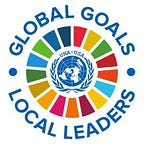The UN Human Rights Council Urgent Debate on Police Violence: What You Need to Know
By Tina Maglakelidze, UNA-NCA Research Assistant
On June 8, together with over 600 rights groups led by the American Civil Liberties Union and U.S. Human Rights Network, the families of George Floyd, Breonna Taylor, Michael Brown, and Philando Castile appealed to the United Nations Human Rights Council to convene a “special session to investigate the escalating situation of police violence and repression of protests in the United States.”
Less than ten days later, following a request by South Africa, Botswana, and Namibia, an Urgent Debate by the Human Rights Council on “current racially inspired human rights violations, systemic racism, police brutality and the violence against peaceful protest” was held in Geneva, Switzerland. Making history as the first family member of a victim to open a debate at the Council, Philonise Floyd entreated:
“You in the United Nations are our brothers’ and sisters’ keepers. I am asking you to help me get justice.”
His brother’s, George Floyd’s, murder in Minneapolis, Minnesota has spurred a historic transnational mobilization against systemic racism in law enforcement. Against this backdrop, it is clear that strong condemnations of systemic racism in the United States are wholly insufficient — the UN must undertake decisive action if it seeks to be on the right side of history.
On behalf of the Working Group of Experts on People of African Descent, current UN Special Rapporteur on Contemporary Forms of Racism, Ms. E. Tendayi Achiume, asserted that the United States’ domestic legal system has utterly failed to acknowledge and confront racial injustice and discrimination. This reality not only warrants a country-specific intervention, but also calls for an honest reinvigoration of the UN’s commitment to the anti-racism human rights framework. Echoing a statement by over twenty senior leaders in the UN, including the head of the World Health Organization and Executive-Director of UNAIDS, “now is the time to move from words to deeds.”
During the debate, Special Rapporteur Ms. Achiume advocated for a Resolution that would have mandated the establishment of an international independent commission of inquiry related to the systemic racism in the United States, and around the world. “Failure to do so,” she argued, “would be to deny people of African descent in the United States the opportunity to draw on the global human rights system to challenge entrenched racial injustice.”
Following the debate, the Human Rights Council passed its Resolution on systemic racism and police violence. It calls on the High Commissioner for Human Rights to prepare a report on systemic racism, violations of international human rights law against Africans and people of African descent by law enforcement agencies. This report is to be followed by an interactive dialogue.
The Resolution passed on Juneteenth, a day of great significance for descendants of slavery in the United States, “strongly condemns the continuing racially discriminatory and violent practices perpetrated by law enforcement agencies against Africans and people of African descent.” It is the first Resolution adopted by the Human Rights Council that includes a victim’s name- George Floyd’s. The High Commissioner’s future report will likely become a helpful tool in facilitating U.S. civil society’s claims to accountability from the United States.
What it does not do, however, is mandate the creation of an international independent inquiry. The U.S. Human Rights Network characterized the Resolution as ‘watered down’; while we must acknowledge progress, we must never grow idle.
In 1947, W.E.B Dubois’ petitioned the United Nations, with the National Association for the Advancement of Colored People (NAACP), for redress on the denial of human rights to African Americans. This constituted one of the very first non-governmental petitions to call on the UN to investigate human rights abuses by a Member State. Over seventy years later, 650 NGOs, including the NAACP, signed onto the coalition letter to the UN that reverberates protestors’ demands that “the endemic racism, hatred, fear and disparity finally be confronted.”
The momentum generated by global demonstrations presents a powerful opportunity to move the UN’s anti-racism agenda forward. The movement’s energy must be harnessed effectively so that systemic racism is acknowledged and addressed at all levels — international, national, and local. Member States, particularly Western European countries, must follow in the Africa Group’s footsteps and support U.S. civil society in rejecting the fundamental racial inequity that characterizes life for black people and other people of color in the United States.
